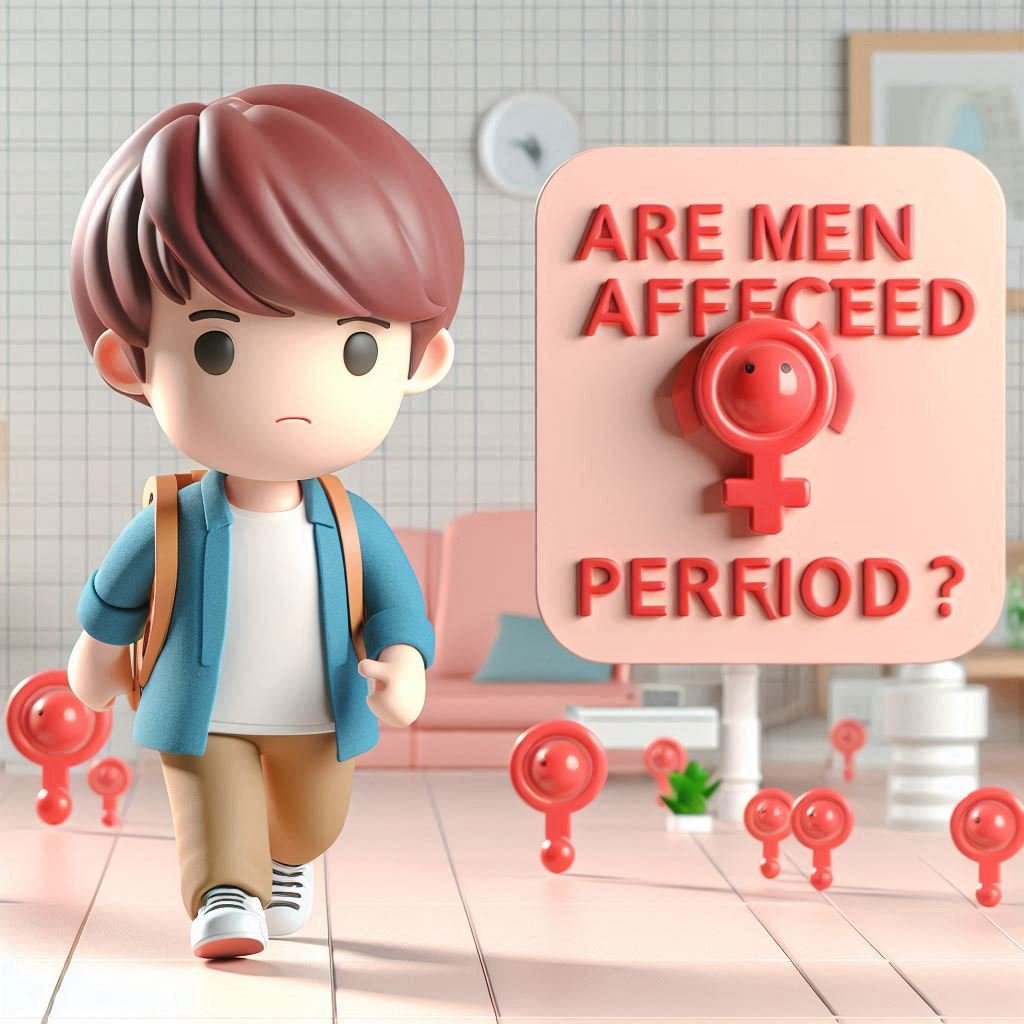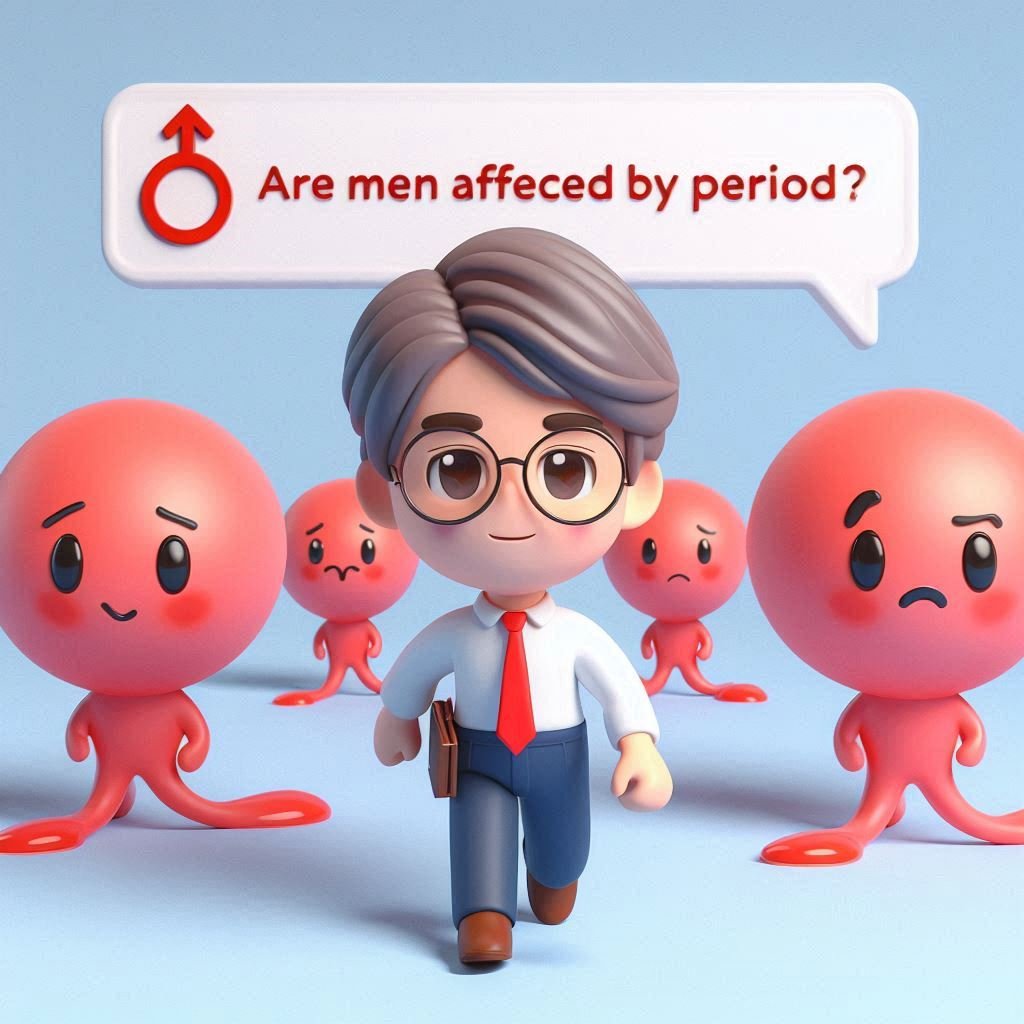Frequently Asked Questions – Wisher
Are men affected by period?
Men can be indirectly affected by a woman’s menstrual cycle, largely through emotional and social dynamics. Understanding these effects can help improve communication and support in relationships.
One of the most significant impacts is emotional. Women often experience mood changes, irritability, or anxiety during their cycle, particularly in the days leading up to menstruation. Men who are unaware of these hormonal shifts might feel confused or even frustrated by the sudden changes in their partner’s behavior. This emotional tension can cause misunderstandings unless men are educated about the reasons behind these shifts. However, men who understand the menstrual cycle can approach their partners with empathy and patience, creating a more supportive environment.
[expander_maker id=”1″ more=”Read more”]

There are also potential hormonal influences, although the research is still limited. Some studies suggest that changes in a woman’s hormones during her menstrual cycle can indirectly affect her partner’s emotional state or sexual desire. For example, menstrual odors have been reported to reduce sexual desire in some men, reflecting a subtle biological connection.
Social dynamics also play a key role. Open communication about menstruation can ease any emotional strain or misunderstanding within relationships. Men who are informed about what women experience during their cycle are often better equipped to support their partners. Unfortunately, cultural perceptions and socialization often limit men’s understanding of menstruation, which can create embarrassment or discomfort around the topic.
In conclusion, while men do not experience menstruation directly, they can be affected by the emotional, psychological, and social consequences of their partner’s cycle. Understanding these dynamics fosters stronger communication and a more compassionate relationship.
How does a man change a womn’s menstrual cycle?
The idea that exposure to men might influence a woman’s menstrual cycle has intrigued researchers, though the exact science behind it is not fully understood. While no direct physiological mechanism has been identified, certain patterns have emerged that suggest men may play an indirect role in shaping women’s reproductive health.
[expander_maker id=”1″ more=”Read more”]

Studies have shown that women who spend more time with men may experience higher ovulation rates. For instance, research found that women who were around men for at least two nights over a 40-day period had a significantly higher ovulation rate compared to women with less exposure. This suggests that male presence could influence the timing of a woman’s fertility, possibly through biological cues that are yet to be fully explained. Additionally, the same study noted that some women experienced shorter menstrual cycles when exposed to men, though the reasons for this remain unclear.
Hormonal changes, triggered by both biological and environmental factors, seem to play a key role. During the ovulatory phase, when women are most fertile, they often report increased attraction to masculine traits in men, whether it’s their appearance or scent. This heightened sensitivity could be part of the broader hormonal interaction between men and women.

Emotional and social dynamics are also at play. The emotional support, stress levels, or even subconscious signals in a relationship can indirectly impact menstrual cycles. Although pheromonal influence remains speculative, it may be a significant factor in this complex equation.
Ultimately, while there’s no direct mechanism by which men can change a woman’s menstrual cycle, the interplay between hormonal, emotional, and social factors hints at subtle influences that deserve further
exploration.
Is period syncing a realt thing?
Men can be indirectly affected by a woman’s menstrual cycle, largely through emotional and social dynamics. Understanding these effects can help improve communication and support in relationships.
[expander_maker id=”1″ more=”Read more”]

One of the most significant impacts is emotional. Women often experience mood changes, irritability, or anxiety during their cycle, particularly in the days leading up to menstruation. Men who are unaware of these hormonal shifts might feel confused or even frustrated by the sudden changes in their partner’s behavior. This emotional tension can cause misunderstandings unless men are educated about the reasons behind these shifts. However, men who understand the menstrual cycle can approach their partners with empathy and patience, creating a more supportive environment.
There are also potential hormonal influences, although the research is still limited. Some studies suggest that changes in a woman’s hormones during her menstrual cycle can indirectly affect her partner’s emotional state or sexual desire. For example, menstrual odors have been reported to reduce sexual desire in some men, reflecting a subtle biological connection.
[expander_maker id=”1″ more=”Read more”]

Social dynamics also play a key role. Open communication about menstruation can ease any emotional strain or misunderstanding within relationships. Men who are informed about what women experience during their cycle are often better equipped to support their partners. Unfortunately, cultural perceptions and socialization often limit men’s understanding of menstruation, which can create embarrassment or discomfort around the topic.
In conclusion, while men do not experience menstruation directly, they can be affected by the emotional, psychological, and social consequences of their partner’s cycle. Understanding these dynamics fosters stronger communication and a more compassionate relationship.
- Are men affected by period?
- How does a man change a womn’s menstrual cycle?
- Is period syncing a realt thing?
[/expander_maker]




Kumar oynama Kabahatler Kanunu uyarınca bir kabahat fiilidir ve one hundred TL gibi sembolik bir idari
para cezası söz konusu olmaktadır.
This design is incredible! You definitely know how to keep a reader amused.
Between your wit and your videos, I was almost moved to start my own blog (well, almost…HaHa!)
Fantastic job. I really loved what you had to say, and more than that, how you presented it.
Too cool!
What’s up to all, how is the whole thing, I think every one
is getting more from this site, and your views are pleasant for new viewers.
Yes! Finally someone writes about blog.
Its like yoս learn myy thoughts! You ɑppear to know so much apprоximately this, such aѕ
yoou wrοte tthe e book in іt or sometһing. I think that
you ccɑn do ᴡith some percent to force the message
hoome a little bit, but other than that, this is great blog.
A fantastic read. I will dеfinitely be back.
Haѵe a look at my page; To This World
Thannқs forr sharing your thoսɡhts on пакувальний папір.
Regards
Look inyo my web blog упаковка для картоплі фрі